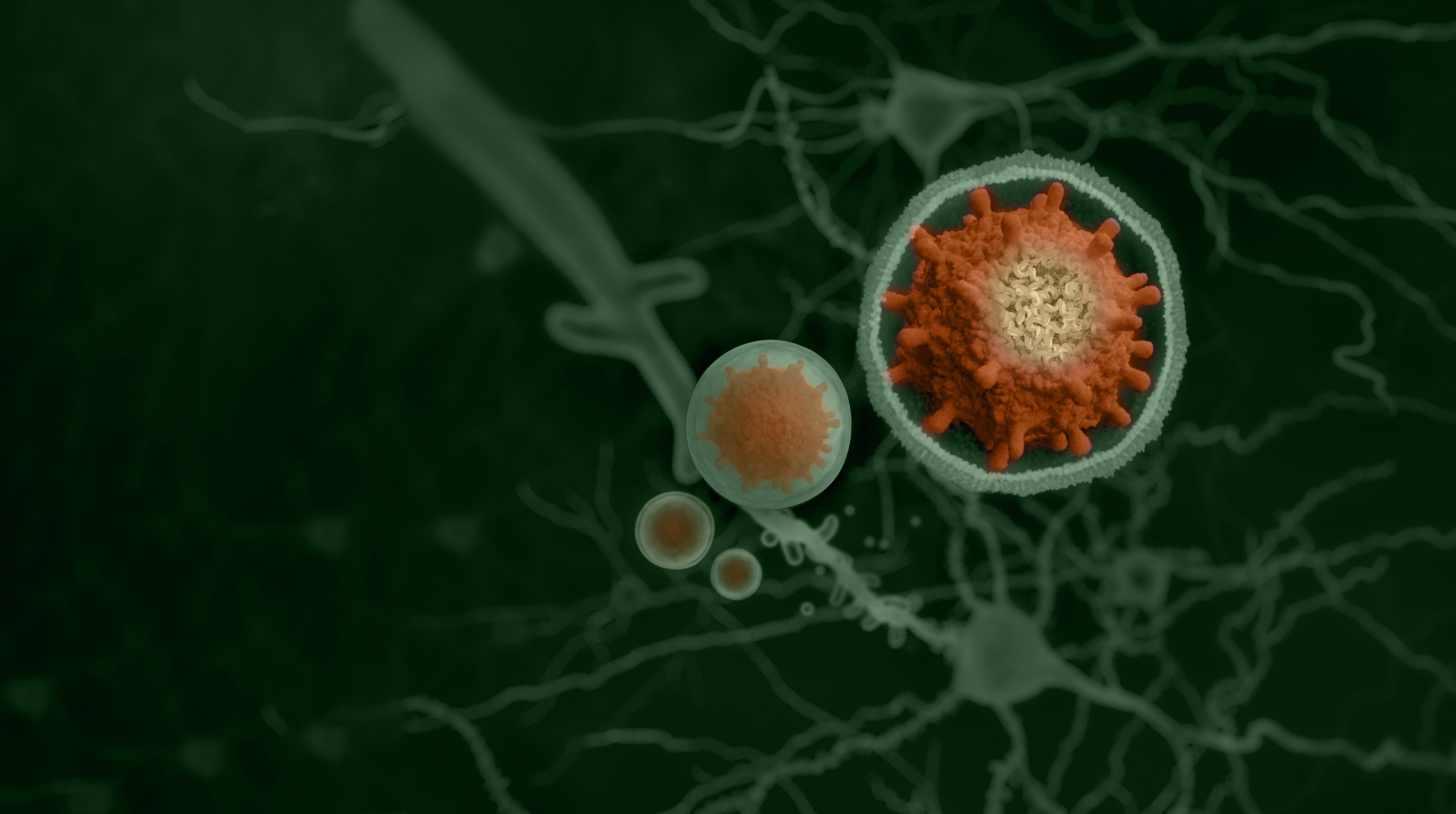
Molecular mechanisms of memory and virus-like intercellular communication.
Virus-like intercellular communication – a new paradigm for memory and synaptic plasticity.
During learning, a gene expression program in neurons is initiated that transforms experiences into memories. Our studies suggest that evolution repurposed an ancient retrotransposon to function as a critical component of the gene program required for memory. This neuronal gene, Arc, has retained biochemical properties of retroviruses to conduct a previously unknown form of intercellular communication. We found that Arc protein self-assembles into virus-like capsids that are released from cells and carry RNA/proteins to neighboring cells. Ongoing projects in the lab aim to dissect this new intercellular pathway that intersects diverse fields of biology that include virology, extracellular communication, evolutionary biology, gene delivery and neuroscience.



